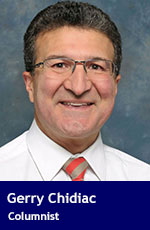 The primary goal of teaching Social Studies in British Columbia is “to give students the knowledge, skills and competencies to be active, informed citizens who are able to think critically.” We want to produce students who can think for themselves and have the moral courage to advance our society in an ethical manner.
The primary goal of teaching Social Studies in British Columbia is “to give students the knowledge, skills and competencies to be active, informed citizens who are able to think critically.” We want to produce students who can think for themselves and have the moral courage to advance our society in an ethical manner.
Accomplishing this is no easy task. It challenges me every day on personal and professional levels. In order to effectively and authentically teach these principles, I need to live them.
Far too often we see things happening around us that we know are wrong, yet we fail to act. What causes this? Is it fear of losing our jobs, offending another person, becoming a target ourselves or simply looking foolish?
How do I not only overcome these fears within myself but teach others to do the same?
This is the issue Prof. Catherine Sanderson of Amherst College addresses in her book Why We Act: Turning Bystanders into Moral Rebels.
Sanderson has observed certain tendencies in human behaviour. She points out, for example, that we’re less likely to take action if those around us aren’t doing anything. We’re like the student who won’t ask a question in class because he thinks he’s the only one who doesn’t understand.
In addition, the fear of losing one’s livelihood for speaking out is quite legitimate. This is why laws protecting whistleblowers in industry and government are so essential. Sanderson believes that the public perception of these people needs to change, however. Instead of seeing them as “rats,” we need to look upon them as them as what they are: persons of conscience.
While many derided him, few would dispute that Sen. Mitt Romney displayed tremendous character when he chose to follow his conscience rather than the recommendations of his political party earlier this year. Romney thus became the only Republican in the American Senate to vote in favour of impeaching President Donald Trump.
Edward Snowden and Julian Assange were once very successful in their respective fields, but both sacrificed their careers and their freedom to reveal the truth about government crimes and violations of international humanitarian law.
What is it about these people that requires them to act according to their conscience rather than out of fear of reprisal?
Sanderson points out that moral rebels tend to have certain personality traits in common. They have high levels of empathy, tend to be self-confident and aren’t easily embarrassed.
They also often have parents who not only displayed moral courage, but who valued their children’s opinions and allowed them to argue. They thus learn to stand up for themselves outside the home as well.
While personality and family upbringing play a significant role in the development of moral character, certain aspects of this quality can also be taught outside the home.
It’s therefore necessary that I create an atmosphere in the classroom where students feel safe to ask questions. I often commend them for their queries because their misunderstanding is likely due to a fault in my explanation. Their questions thus help clarify concepts for their classmates.
Respectful and informed classroom dialogue is also vital. For example, when students do independent research in my Social Justice class, I strongly encourage them to present their findings to the class, giving them the opportunity to be a voice for positive change.
Perhaps most importantly, I must be a person of conscience myself. In order to teach with integrity, I have to live with integrity. In order to create ethical citizens, I need to model this behaviour as well as I possibly can.
To be moral rebels then, the words of Albert Einstein can never be too far from one’s thoughts: “What is right is not always popular, and what is popular is not always right.”
Troy Media columnist Gerry Chidiac is an award-winning high school teacher specializing in languages, genocide studies and work with at-risk students.
For interview requests, click here. You must be a Troy Media Marketplace media subscriber to access our Sourcebook.
The views, opinions and positions expressed by columnists and contributors are the author’s alone. They do not inherently or expressly reflect the views, opinions and/or positions of our publication.


